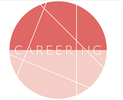CVs
Your Curriculum Vitae, or CV, is the ‘face’ of your career, it’s your billboard as such. It’s usually the first impression someone has of you professionally so it pays to invest the time to get it right!
If you’re applying for a role online via Seek or TradeMe or other generic job ad site, or approaching a company and looking to connect ‘cold’ ie you’ve tracked down the recruiting manager/key influencer/leader and this is your first, and maybe only, attempt to engage them, then you need to nail it.
While there is technically a difference between a resume and a CV, here in New Zealand, we use them interchangeably. Apparently though, a CV is intended to be a full record of your career history and a resume is a brief, targeted list of skills and achievements. Safe to assume they’re one in the same here and we use both terms so just roll with us here.
If you’re applying for a role online via Seek or TradeMe or other generic job ad site, or approaching a company and looking to connect ‘cold’ ie you’ve tracked down the recruiting manager/key influencer/leader and this is your first, and maybe only, attempt to engage them, then you need to nail it.
While there is technically a difference between a resume and a CV, here in New Zealand, we use them interchangeably. Apparently though, a CV is intended to be a full record of your career history and a resume is a brief, targeted list of skills and achievements. Safe to assume they’re one in the same here and we use both terms so just roll with us here.
The Basics
- Keep it to short and sweet - around three pages if you’re starting out, five at the most if you’ve a depth of experience
- Make sure your contact details are on there and easy to find
- Have an email address that is appropriate for the role you’re applying for (true story – Melissa here, I once had a CV hit my desk for a Supervisor role, with the contact email as ‘bundyb*tch’ + a number combo @gmail.com – that’s enough to move you from the ‘Yes’ to the ‘No’ pile in most circumstances)
- Grammar and spell check several times
- The most common errors according to an NZ Herald article: incomplete employment history, incorrectly formatted file names, CVs that were too long or too short, and spelling mistakes.
Careers.govt.nz say it beautifully - there are two main types of CV
- Skills-focused CV – useful for career changers, school leavers or people with gaps in work history.
- Work-focused CV – useful for showcasing work experience and for people progressing to the next stage in their career.
Custom Design Your CV for Each Opportunity
You only have one shot at making a first impression – that’s true for when we meet people in person and when we connect digitally. To make the best first impression, be prepared.
As with the cover letter, the same is to be said for CVs. Each application should have a relevant and compelling CV and cover letter. While creating a new CV for each role is a little too labour intensive, you can have a couple of versions ready to go that are fine tuned for each role. If you’re able to group the types of opportunities you’re after into a couple of areas where they have similar skills, write the CVs accordingly.
For example, let’s say you’re a Science gal and if you were looking for either a Science based research role, or one teaching Science, you’d structure these CVs and letters quite differently.
Better yet, find some job ads for similar roles, say three of each for teaching and for researching, print them off and get out the highlighters (or do it digitally). Highlight the key words that appear on each and then be sure to include these words, where you genuinely can do so in your CV.
As with the cover letter, the same is to be said for CVs. Each application should have a relevant and compelling CV and cover letter. While creating a new CV for each role is a little too labour intensive, you can have a couple of versions ready to go that are fine tuned for each role. If you’re able to group the types of opportunities you’re after into a couple of areas where they have similar skills, write the CVs accordingly.
For example, let’s say you’re a Science gal and if you were looking for either a Science based research role, or one teaching Science, you’d structure these CVs and letters quite differently.
Better yet, find some job ads for similar roles, say three of each for teaching and for researching, print them off and get out the highlighters (or do it digitally). Highlight the key words that appear on each and then be sure to include these words, where you genuinely can do so in your CV.
Have Your CV Online

This is even more important in today’s digital world where many recruiters use database searches to find candidates for opportunities, even before they advertise it.
In fact, rumour has it that up to 75% of roles are filled before the even get advertised. So it’s a smart move to have your CV ready to roll in these databases so you’re in to win, before you even know there’s a spot that could be perfect for you.
Quick tip: Name each version of the CV for the role so you don't get confused and accidentally send the wrong one. So, say your name is Jasmine McCaw and you're applying for a role at the cool AI startup Aider, save the CV file as "CV JMcCaw - Aider 2019" and "Cover Letter JMcCaw - Aider 2019".
In fact, rumour has it that up to 75% of roles are filled before the even get advertised. So it’s a smart move to have your CV ready to roll in these databases so you’re in to win, before you even know there’s a spot that could be perfect for you.
Quick tip: Name each version of the CV for the role so you don't get confused and accidentally send the wrong one. So, say your name is Jasmine McCaw and you're applying for a role at the cool AI startup Aider, save the CV file as "CV JMcCaw - Aider 2019" and "Cover Letter JMcCaw - Aider 2019".
SUMMARY
- Decide the types of roles you’re keen to explore
- Find examples of these and find their key words
- Create several versions of your CV, each with the relevant key words, and have a more general version too if you’re open to broader possibilities
- Example: You can have two versions of your standard CV called ‘CV - Science’ and ‘CV - General’ then customize them to suit the role and company
- Spell check and grammar check them several times - and get someone else to do the same as errors stand out strongly to hiring managers
- Approach recruiters, build relationships with them, and get your CV on their books
- Have a good Seek, TradeMe or other job-board profile and upload a version of your CV
Or if you’re ready to smash that goal and you know of a company that is perfect for you and you for them, or you see a role that lights a fire within you:
- Research the role, the company, the recruiter, the whole shebang
- Note down areas of alignment
- Write a kick ass cover letter drawing the lines between them and you
- Attach this and a CV, written for this role, with good key words
- Send it off and let the magic happen
It’s Not You ...
|
What if you don’t hear back? Or get the 'thanks but no thanks' response?
Firstly, know that you’ve given it your best shot and sometimes the dice doesn’t roll the way you want it to, that’s just how it is sometimes. Even if you get that old rejection line and it doesn’t work out as you hoped, it’s a smart idea to follow up to grab some feedback as there may be some gems there. Also, it may mean you’re top of mind if the opportunity comes back again or another like it. So call them, ask for specific feedback and take on board what’s valuable. |
Consider asking questions such as:
- What feedback do you have in general for me?
- How I could have enhanced my application?
- What areas could I develop further to be more suited for a role like this in the future?
- What are the ‘top of the pile’ candidates doing I could learn from?
Templates
Here are some great templates to get you started. Have a squiz at them all and go with the one that will showcase your unique and bloody fabulous skills in the best possible way!
- Microsoft Word has great templates ready and waiting – seriously! Go click ‘FILE > New from Template’ and click on the one you like the look of
- Careers.govt.nz have some goodies too
- The Seek template is cool – take the learnings from the Careers one, and mash it into this template if you’re feeling creative
- Hudson’s are okay too, their one pager is good for school leavers, again modify to suit though
Other Content That Might Be UsefulWe've gathered some thoughts on applying for roles and cover letters, so please go check them out too.
We know it's a lot to wrap your head around but you're not alone!
Connect with us on social and do shout out if you have specific questions you’d like us to answer too, we'd love to rally the crew and help you out because chances are you're not the only one with that question, so let's help you and all the others so get at us! |
|
© COPYRIGHT CAREERING 2018. ALL RIGHTS RESERVED.
|



